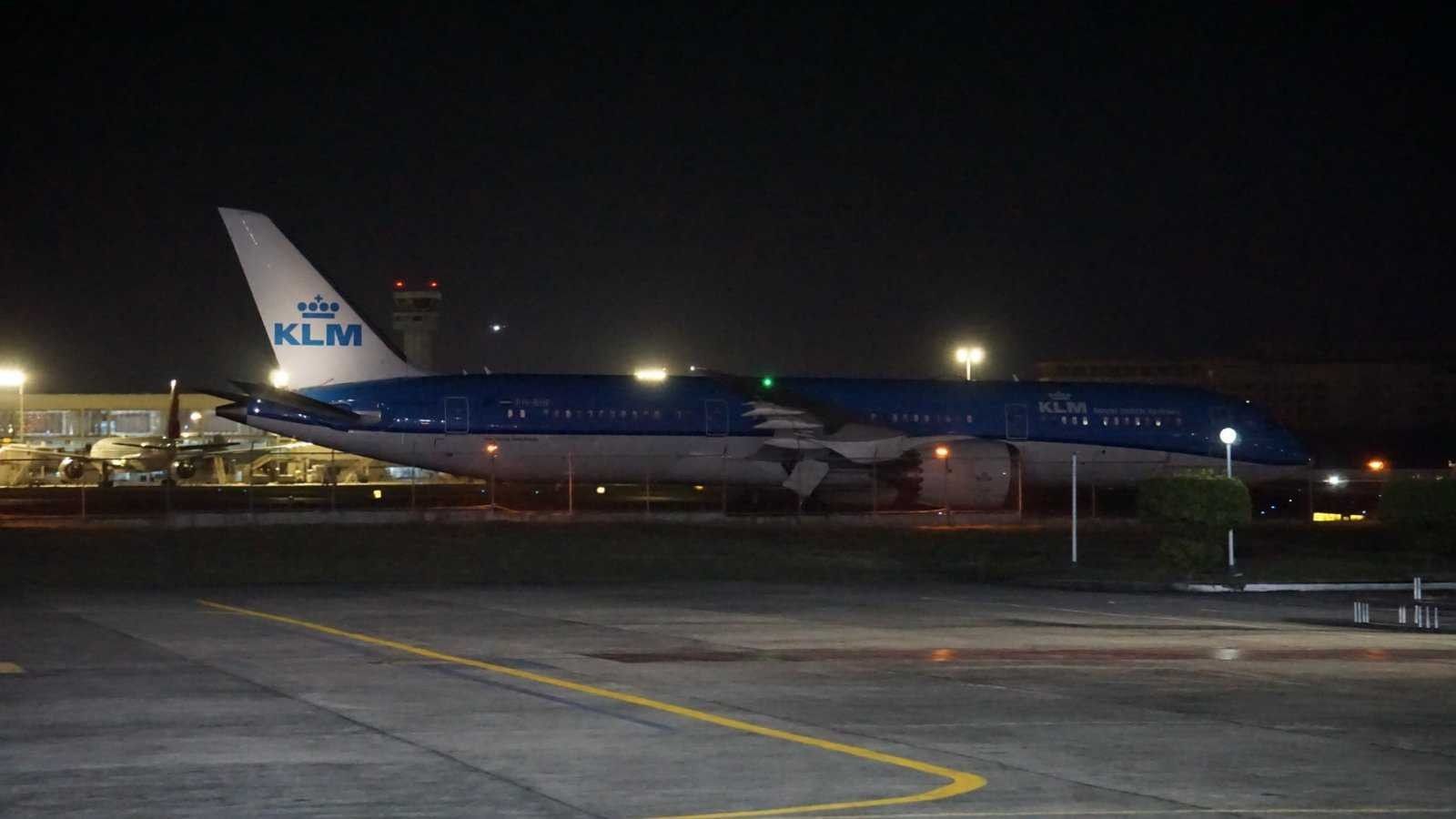After delays, first AstraZeneca jabs from COVAX arrive in Philippines

MANILA, Philippines (Updated 10:18 p.m.) — Initial doses of AstraZeneca under the COVAX facility arrived in Manila on Thursday night, the first delivery from the World Health Organization-led initiative that comes days into the country's vaccination efforts.
A KLM Royal Dutch Airlines plane carrying some 487,200 doses landed at the Villamor Air Base in Pasay City by 7:10 p.m., with officials set to officially receive the much-needed jabs at a time when nearly 585,000 Filipinos have contracted COVID-19 and with over 12,400 dead from the pandemic.
In total, the Philippines is seen to receive 4.58 million doses of the AstraZeneca vaccines as part of its share from the COVAX facility, along with 117,000 doses of doses made by Pfizer.
Officials initially said 5.5 million of the British-Swedish drugmaker's doses were allocated for the country but this was changed recently per an allocation list published by the WHO.
Speaking at a ceremony at the arrival of the vaccines, President Rodrigo Duterte reiterated his call to make the jabs accessible to many countries and encouraged Filipinos to get vaccinated as soon as they can. He also thanked the donor countries, which include members of the European Union, a bloc that he had cursed in the past for alleged interference in domestic issues.
"I don't know how to express my gratitude to [you]," he said. "That you remembered the poor nations is in fact already a plus for humanity..I'd like to say again that we felt the gratitude in our hearts."
"May God bless you for your benevolence," he also said.
WHO representative in the Philippines Rabindra Abeyasinghe, speaking at the brief ceremony, said that although vaccines have been arriving, preventive measures should not be abandoned. "Nobody is safe until everyone is safe," he also said.
The vaccines from the COVAX facility were expected to arrive in February, as the administration sought to give dates that later on turned out to be estimates.
AstraZeneca's jabs secured emergency use approval from the Food and Drug Administration in late January after Pfizer did, and was followed by Sinovac.
The government's vaccination program started this week with 600,000 doses donated by Beijing, the first to reach the Philippines last week,
Taken in two doses, the AstraZeneca vaccine was found to be 70% effective on average. On Wednesday, however, a member of the OCTA Research team warned that its efficacy rate could decrease to just 10% against the new COVID-19 variant first seen in South Africa that has already been detected in the country.
But the health department in a briefing earlier Thursday sought to allay such fears, saying the studies cited had a small sample of individuals.
It came as South Africa halted the rollout of AstraZeneca after trials there showed a poor showing against combating the said variant. To which, Health Undersecretary Maria Rosario Vegeire said: "No matter what the publications say that its efficacy has gone lower, until we are not certain, we will continue to use the vaccines."
The arrival marks an important step in the vaccination efforts in the country, as some health workers — first in line to receive the jabs — sought alternatives to Sinovac.
Government said too that medical workers above 60 could be prioritized to get Pfizer vaccines, since Sinovac is not recommended for senior citizens.
All donations, none bought
COVAX facility's allocation is different from the direct procurement by government to vaccine manufacturers.
The European Union, for one, said it has provided € 2.2 billion to help countries gain access to vaccines, including the Philippines.
In a statement, EU's ambassador to the country Luc Véron said the union "has both a responsibility and interest to make vaccines available for all," adding that the union is the "biggest contributor" to the COVAX's donation to the country.
To date, only term sheets have have been signed, with no purchase deals yet. The supplies from Sinovac and AstraZeneca are also donations.
This means that despite officials' repeated pronouncements that the country will have enough supplies this year, the administration has yet to spend the allocated P72.5 billion meant to buy vaccines, funding that is from money borrowed from multilateral sources such as the World Bank.
- Latest
- Trending





























